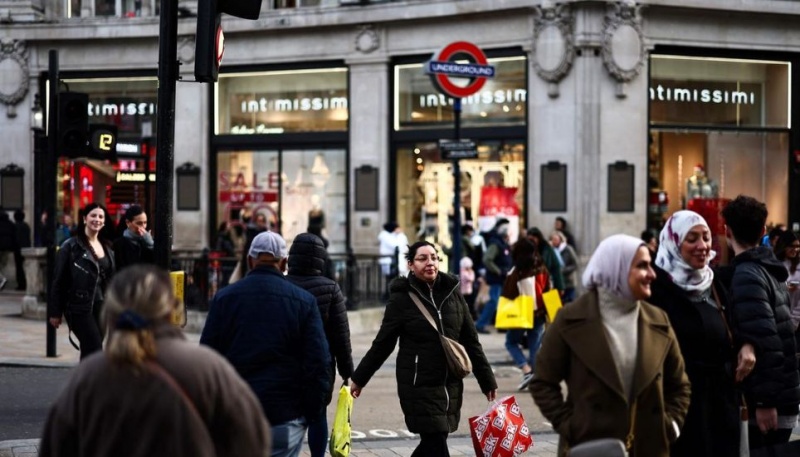Britain emerged from a shallow recession with stronger-than-anticipated growth in the first quarter, according to official data released Friday, providing a lift to UK Prime Minister Rishi Sunak ahead of this year’s election.
The Office for National Statistics (ONS) reported a 0.6 percent expansion in gross domestic product (GDP) during the first three months of the year, driven by robust growth in service industries and car manufacturing. This surpassed market expectations of 0.4 percent and represented the most robust performance since the fourth quarter of 2021, contributing to another record peak for London’s stock market.
Sunak, whose Conservative Party trails the Labour Party in polls and suffered significant losses in recent local elections, has prioritised economic growth. The economy had experienced two consecutive quarters of slight contraction in the latter half of last year, technically entering a recession due to elevated inflation and a cost-of-living crisis.

“There is no doubt it has been a difficult few years, but today’s growth figures are proof that the economy is returning to full health for the first time since the pandemic,” remarked finance minister Jeremy Hunt. He emphasised that the UK’s growth outlook over the next six years is the most favorable among European G7 countries.
However, Labour’s finance spokesperson Rachel Reeves criticised the government’s management of the economy, citing ongoing challenges such as high food prices, increased mortgage bills, and declining real wages.
The data follows the Bank of England’s decision to maintain its main interest rate at a 16-year high, while hinting at a potential cut in the summer as inflation moderates. The Bank also forecasted an exit from recession in a positive outlook.
GDP had contracted by 0.3 percent in the fourth quarter of 2023 and 0.1 percent in the preceding three months, according to unrevised ONS data.
While the Bank of England opted to keep borrowing costs steady, signaling a cautious approach, two members of its Monetary Policy Committee voted for a rate cut at the May meeting.
Finance Minister Hunt urged the Bank to avoid premature rate cuts, advocating for a cautious stance until there is clear evidence of sustained inflation reduction.
UK annual inflation moderated less than anticipated in March, reaching 3.2 percent, a notable decline from late 2022 when it spiked above 11 percent due to soaring energy and food prices following Russia’s invasion of Ukraine.


